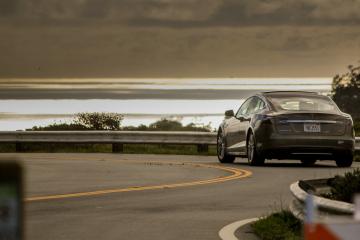
On 27 April 2020 at 11:00 (CEST), the International Energy Agency (IEA) is hosting a webinar on the 'Integration of electric vehicles in areas of extreme heat'.
As electric vehicle (EV) technology continues to progress and its market share grows, economies worldwide are increasing their uptake of vehicles. This includes countries characterised by hot and harsh climates where there can be some common challenges with respect to the integration of electric vehicles in their road transport systems. For example, the potential impacts of high temperatures on the degradation of batteries and charging infrastructure. Solutions developed in one country therefore may be relevant to others.
This webinar will provide outcomes and insights from a research project by the Qatar Environment and Energy Research Institute (QEERI), which is undertaking research to support the roll-out of electric vehicles in Qatar. Aspects covered include:
- High temperatures can affect the functioning of fast and ultra-fast chargers and substantially reduce the lifetime of the batteries on-board the vehicles or at charging stations. Fast chargers are not only key to supporting EV adoption among passenger car users but are also needed at bus transit and other heavy-duty vehicle depots. Although different fast charging systems are available in the market, these are mainly designed for certain climate conditions.
- Environmental conditions, such as dust, have also been observed to have a detrimental effect on the power electronics of batteries and chargers; the impact of this needs to be better understood and adequate solutions developed.
- The uncontrolled charging of EVs may have disruptive impacts on the grid (power quality, transformer aging) which may require utilities to have additional capital investments. QEERI are addressing this issue in the context of a rapidly evolving system where the expansion of urban areas is accompanied by the deployment of smart grid technology and solar photovoltaic panels.
- The techno-economic and policy perspective, taking into account the specificities of the market and its various segments, but also climate aspects and particularly how the use of air conditioning will impact electric vehicle range.
